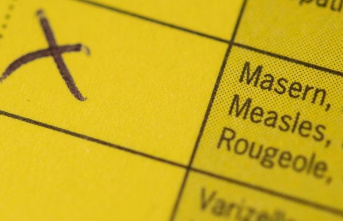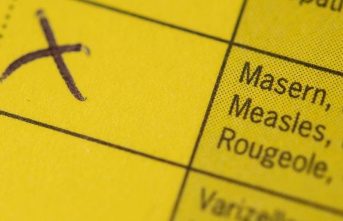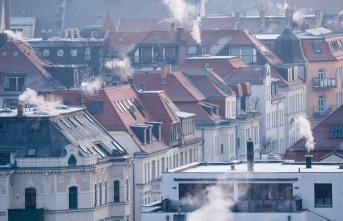At this ninth day of action against the pension reform, the trade unions expected a very high turnout, mainly because the government pushed through its unpopular reform on Monday despite all the criticism and without a vote in parliament. According to the state railway company SNCF, half of all high-speed TGV connections in the country should be canceled and between 20 and 50 percent of all train connections between Paris and the suburbs. Around noon, the provisional strike participation was 25 percent, according to SNCF.
In Quimper, western France, demonstrators blocked access to the train station and occupied platforms. Also to the west in Rennes, Saint-Brieuc and Evreux, bus depots were blocked.
According to the government, the supply of kerosene from Normandy to airports in the greater Paris area is also becoming "difficult" because refineries in the north-western French region are on strike and blocked. The French civil aviation authority also asked airlines to cancel 30 percent of their flights from Paris-Orly and 20 percent at other airports for Thursday and Friday. The reason for this is a strike by air traffic controllers. The ports of Marseille and Brest were completely blocked on Wednesday.
The Ministry of Education announced a strike by around a fifth of teachers for Thursday. Dozens of schools and universities were blocked by protesters on Thursday morning.
Garbage collection in the French capital, which has been on strike since March 6, announced an extension of its strike until Monday. Garbage bags are already piling up in the streets of Paris and garbage cans are overflowing on the sidewalks. Blockades in front of refineries were also said to continue - which raised concerns about a fuel shortage.
In a TV interview on Wednesday, President Emmanuel Macron was intransigent in the face of criticism of the pension reform. He expressed the expectation that the reform would come into force "by the end of the year". In particular, the reform envisages raising the retirement age from 62 to 64 by 2030.
Prime Minister Elisabeth Borne had resorted to constitutional paragraph 49.3 on Macron's instructions to implement the reform. According to this, a law can be passed without a final vote in Parliament if the government survives a subsequent vote of no confidence. On Monday, the government narrowly escaped being overthrown in such a vote. This action fueled the anger of government critics.
In the past few weeks, there have been repeated violent protests and clashes with the police across the country because of the reform. As a result, hundreds of arrests were made and allegations of ruthless action by the security forces.
President Macron's popularity ratings, meanwhile, are at their lowest since the peak of the money vest protests in 2018 and 2019.











